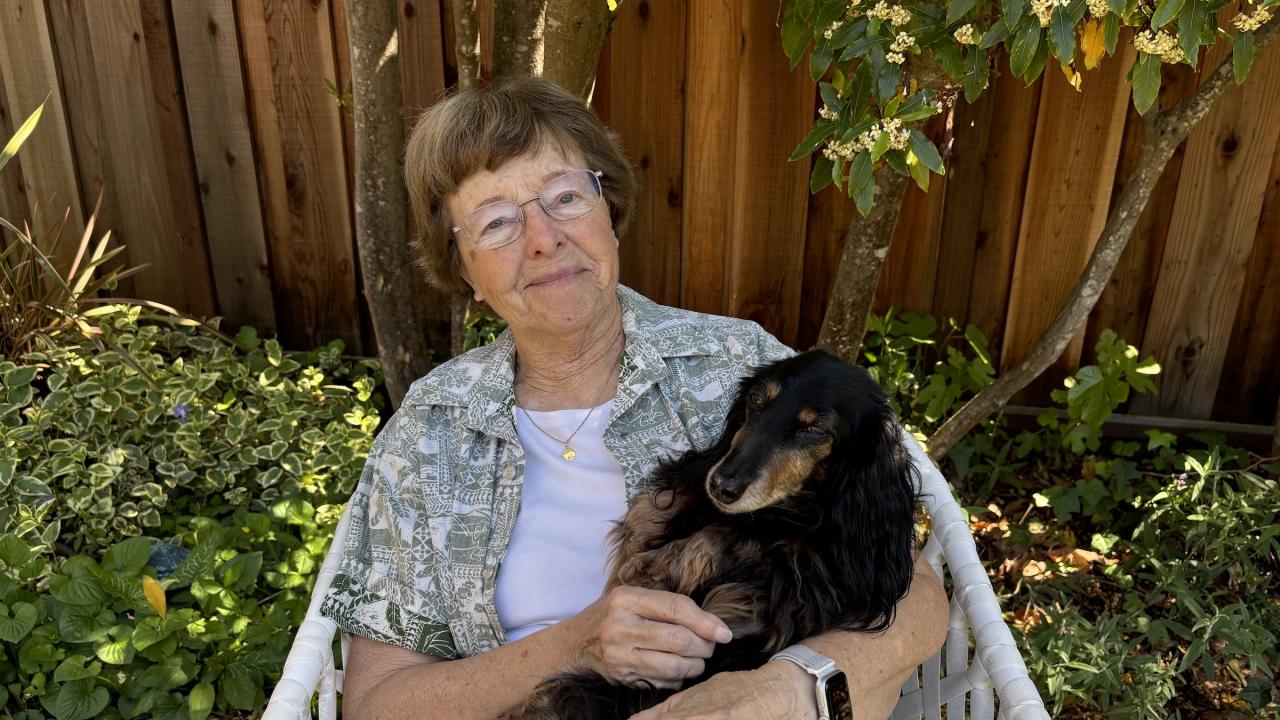
Dedication to Advancing Canine Health
**This article originally appeared in the Fall 2024 issue of the CCAH Update**
Dr. Harriet Benson, a lifelong enthusiast of the Dachshund breed, has had nine of these lovable dogs over the years, including 14-year-old Bandit and 11-year-old Buster.
Benson described her Dachshunds as having terrific personalities, each with endearing qualities. Bandit is a selective, slow eater and less social than Buster, who is affectionate and independent. One of their favorite activities is riding in the car.
“I have enjoyed the companionship of both smooth and long-haired doxies, like Bandit and Buster,” Benson said. “They have all brought me lots of joy. I can’t imagine life without having one.”
Benson first learned about the UC Davis Center for Companion Animal Health (CCAH) when her veterinarian, Dr. Williams L. Klein, from the Village Square Veterinary Hospital made a meaningful gift to the center’s Companion Animal Memorial Fund in memory of her beloved Dachshund Monte, who passed away from a mast cell tumor. Donations to this fund make significant impact supporting clinical health research to improve treatment for diseases affecting companion animals.
After learning about the CCAH and its mission, Benson herself became inspired to support its work since 2004, including a planned gift to advance canine health research.
“I am especially interested in research that will benefit cherished dogs like my Bandit and Buster,” Benson said. “I recognize that science and research are key to advancing companion animal health and make breakthroughs possible.”
We are tremendously grateful to Dr. Benson for her dedicated partnership and honored by her support of our work to make the lives of animals better, healthier and longer,” said CCAH Director Michael Kent.
The CCAH supports research to improve the health of companion dogs in a range of areas, including anesthesia, behavior, nutrition, oncology and surgery. Completed studies have led to new treatments and therapy options, better understanding of disease and genetic defects, and knowledge leading to advancements in canine health.
